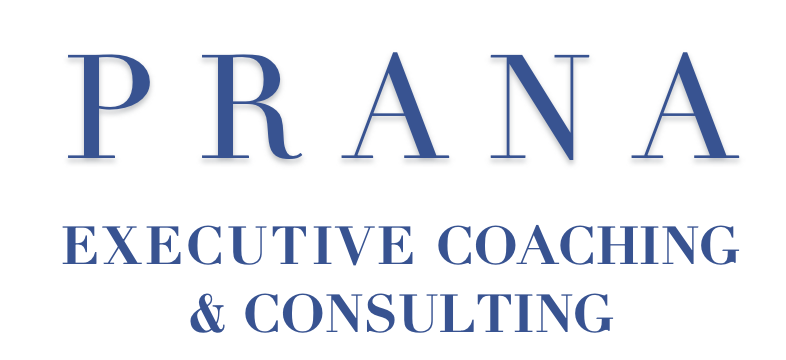Coaching managers vs. C-level: What are the differences?
One of the mistakes new coaches make is applying the same coaching practices and strategies to all levels of leaders.
How exactly does coaching work?
While a professional coach may occasionally provide guidance or advice, the coach’s primary role is to help the client develop greater self-awareness.
What is a Chemistry Call?
A coaching chemistry call, sometimes referred to as a discovery call or consultation, is an initial conversation between a prospective client and a coach.
How to Select an Executive Coach
The executive coaching industry has grown significantly over recent decades, So, how do you select a great executive coach? A review of research indicates five critical factors:
3 Trends in Leadership 2024
Recent research on leadership has highlighted several evolving trends and critical insights that are shaping how we think about leadership in 2024,
The Leadership Bookshelf: Books on Executive Coaching
I often get asked which books I would recommend to sharpen coaching skills, either as a leader or an external professional coach. These books offer a mix of theoretical insights, practical tools, and real-world case studies to help you develop and refine your executive coaching skills.
Employee Recognition: Low Cost, High Impact
Leaders I coach often report that they don’t provide enough positive recognition. Positive recognition and feeling a sense of progress are two of the biggest motivators for performance, so why don’t we do more of it?
Leading Others Holistically
Fascinating research recently from McKinsey shows that employers are going beyond burnout and stress to consider employee well-being more holistically, including different factors that impact holistic employee wellbeing and how predictive each factor is to overall health.
Team Coaching is a Leadership Skill
Coaching the team as a whole, not just individuals, is becoming a key leadership skill. Team coaching, whereby you use coaching practices in team meetings, has parallels to the same practices which foster team psychological safety including…
The Neuroscience of Positive Leadership
In order to understand team engagement & motivation, Google asked 180 teams: What is most important for team performance? The top responses included: making an impact, having meaning, role clarity and structure, and dependability of others. But the #1 response was psychological safety; that team members feel safe to take risks and be vulnerable in front of each other.
5 Minute Planning, Daily
Research shows that the first five minutes of your workday are critical to how effective the rest of your day is. When you first arrive at your office, what do you do?
High Performing Habits, part 2
The habits we create during our “off-work hours” can be some of the most impactful on our focus, creativity, resilience and physical and mental energy – all of which we need in large supply to successfully navigate the the average workday,
High Performing Habits
A recent article in the Harvard Business Review presented research that shows that the effective leadership performance is based less on skill in leadership competencies, and more on discrete, daily routines that are utilized to drive personal and organizational effectiveness. In other words, the most effective leaders have strong daily habits for themselves and their teams. Over time, these habits lead to higher performance.
Leading with Warmth vs. Strength
In a recent coaching conversation with a senior executive, he started our session by expressing frustration with casual chit-chat at the beginning of meetings. He has an extensive to-do list which never gets shorter, and often works long hours, so getting down to business is a priority for him. He considers his strengths to be his ability to execute effectively and quickly, and to be someone who is reliable, trustworthy and competent. These qualities are meaningful leadership traits and important to his work in strategy and finance. However, there is a flaw in this leader’s thinking…
Manage Energy, Not Time
Research shows that energy management is the “new” time management – it’s not just about the number of hours in the day you create, it is about the quality of those hours, and how you manage your energy.
The Leadership Bookshelf: What We’re Reading
The Remix: How to Lead and Succeed in the Multigenerational Workplace by Lindsay Pollack. Great insights & tips on creating, and working in, a diverse engaging workforce.
Reboot: Leadership and the Art of Growing Up by Jerry Colonna. Easy to read, and full of engaging stories, this book…
The Empty Calendar Exercise
The average work day of most executives is busy and complex. Calendars are overbooked, meetings run into other meetings, and days and evenings are full of activities - social events, dinners, family obligations. Each day brings new demands -- a request to speak at an All Hands, an invitation to lunch, an ask to review a proposal with a peer.
Leading with a Growth Mindset
In her book "Mindset", Stanford University psychologist Carol Dweck summarizes decades of research on how a person's mindset affects achievement and success. Her research shows that there are two mindsets that we all employ: Fixed and Growth.
In a growth mindset, people believe that their most basic abilities can be developed through dedication and hard work—brains and talent are just the starting point.




















